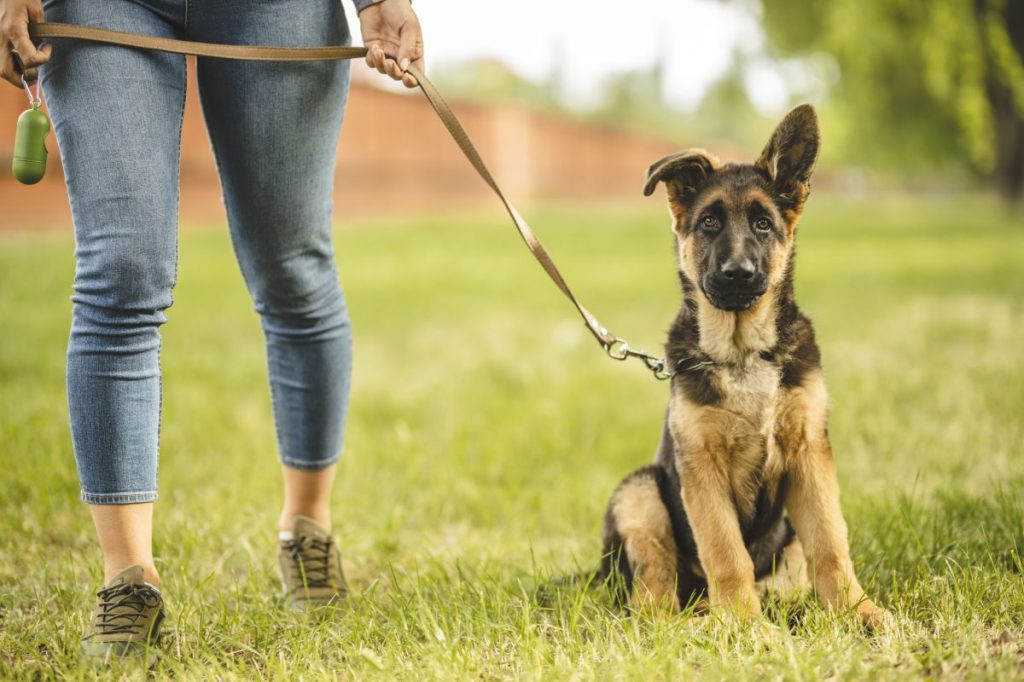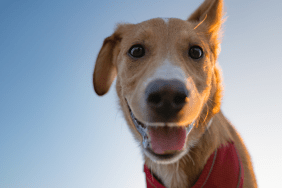Dogs are a part of our family, but who formed part of theirs? With more mixed breeds cropping up, DNA tests have gained popularity among pet owners seeking to confirm their canines’ genetic compositions. However, as per CBS News Boston, the very accuracy of dog DNA tests was thrown into question by Michelle Leininger’s experience after she submitted her own cheek swabs for a DNA test.
Woman tests DNA of both her dog and herself
Leininger — a resident of Salem, New Hampshire — opted for genetic testing after adopting Jasmine, a rescue dog. Jasmine’s striking resemblance to a German Shepherd spurred her pet parent’s decision to order the test.
Leininger shared her reasoning, saying: “Shepherds have a history of hip issues, so we wanted the DNA testing to know what [Jasmine’s] history was.”
The test, however, presented an unexpected twist. While German Shepherd ancestry was confirmed, the report also revealed a surprising mix of 14 other breeds. Furthermore, the inclusion of “Chihuahua” among the assortment left Leininger perplexed, leading her to explore further.
The WBZ-TV I-Team at CBS News undertook additional tests with various companies. The subsequent results consistently confirmed the presence of German Shepherd genes, yet the percentages ranged from 65% to 29%. Beyond that, each company’s findings presented an eclectic assortment of other dog DNA. This list included Great Pyrenees, Siberian Husky, and even Korean Jindo.
Furthermore, Leininger went a step further in testing the system by collecting a swab from her own cheeks. The results couldn’t have been more bizarre. As per the feedback from her personal test, Leininger’s genetic make-up reportedly consisted of 28% Bulldog, 40% Border Collie, and 32% Cane Corso genes.
Leininger’s experience casts doubt on the accuracy of dog DNA tests
Despite reacting to the findings in good humor, Leininger asserted that she would not invest in similar tests again, deeming it not worth the expense. Her decision does make sense, considering that the cost of her test kit came to $80.
Leininger is hardly alone in this regard. Market research reveals that pet DNA testing is a $345 million market, expected to grow by 85% before 2030.
Dr. Lisa Moses, a veterinarian and bioethicist at Harvard Medical School, agrees with Leininger. According to Moses, “A company should know if they’ve in any basic way analyzed a dog’s DNA, that that is not a dog.”
However, DNA My Dog — the company that conducted the test — sent the I-Team a response clarifying the unexpected test results. According to Service Director Jessica Barnett, the second sample yielded dog DNA. Barnett claimed that if a human sample had truly been submitted, such results would not have been possible.
Dr. Becca Chodroff Foran, who serves as the Head of R&D at Wisdom Panel — a division of Mars Petcare Science & Diagnostics — also commented on these varied results. She explained that each company uses distinct reference populations, although their own “breed detection system consistently outperforms other approaches.”
The fact that people might make medical decisions based on one of these tests is what prompted Dr. Moses to worry. As such, she and her colleagues are urging legislators to ensure the accuracy of dog DNA tests. Proposed standards would include data sharing among labs to guarantee more consistent results in the future.
Currently, the absence of precise genetic codes makes the process of identifying dog breeds more complex. Instead, breed determination relies largely on visual characteristics, which remains dubious at best. For now, pet parents are left hoping for rapid advancements in DNA technology. Some may even be waiting for a future where test results are held to stricter legal standards.









